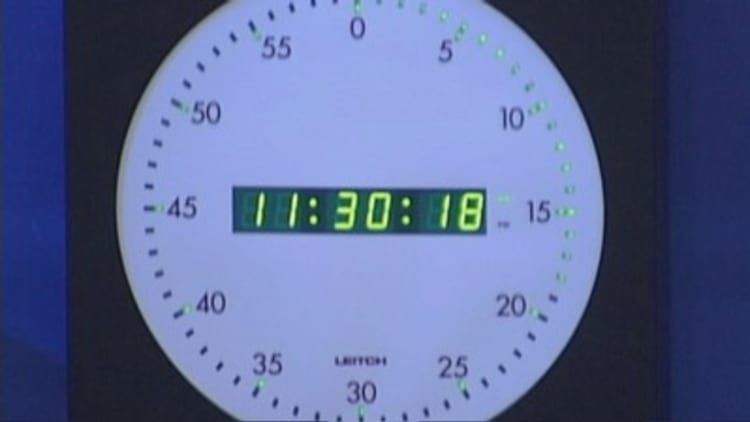
On Tuesday night, time will stop—for one second—and companies, market exchanges, and computer systems are bracing for the halt.
Well, actually, time will keep going on as usual, but the world's atomic clocks will momentarily pause to sync up with the rotation of the earth. The International Telecommunications Union—the group that determines the world's time scale, will add one "leap second" to its clocks at 23:59:59 on June 30, according to reports in National Geographic and New Scientist. (Tweet This)
For one second, the agency's Coordinated Universal Time (UTC) clock will read 23:59:60, and then display the usual 00:00:00 to mark midnight on July 1, according to a blog post on the group's website.
On average, it takes 86,400.002 seconds for the Earth to make one full rotation—the length of one day. But as the earth moves, other forces, such as gravitational pulls from the sun and the moon, are slowing down Earth's rotation. The average day is slightly longer than it was a century ago, according to the New Scientist. Adding leap seconds—which scientists began doing in 1972—is a way to compensate for the change.
Not everyone is happy with the occasional changes. For one thing, the last leap second switch in 2012 caused computer systems to crash—companies have had problems adjusting to the tweaks in the past. Others argue that the the leap second system is still inaccurate and call for the end of the system entirely, according to the New Scientist. If those opponents prevail, this could be the last time leap seconds are added to the clock.


